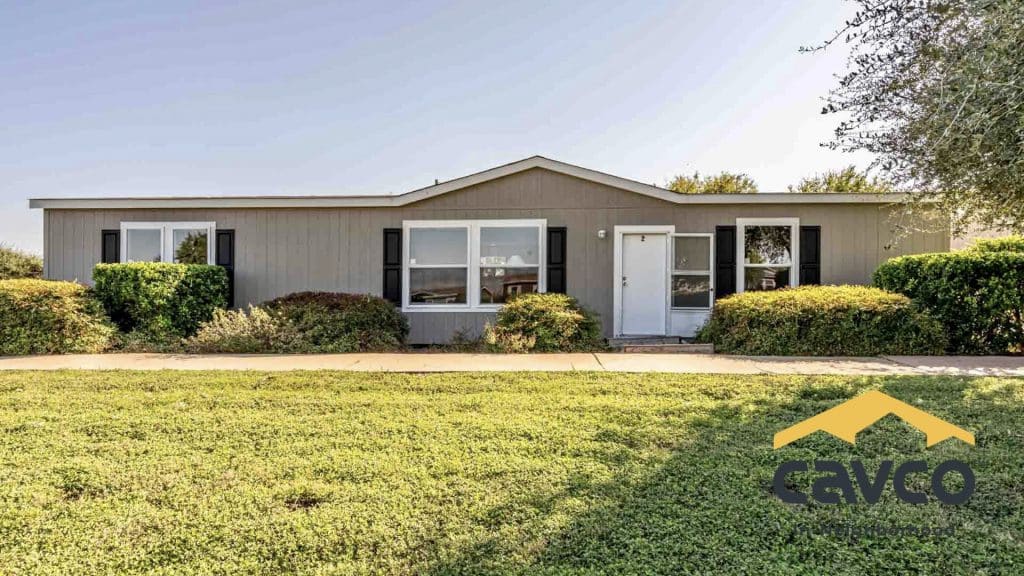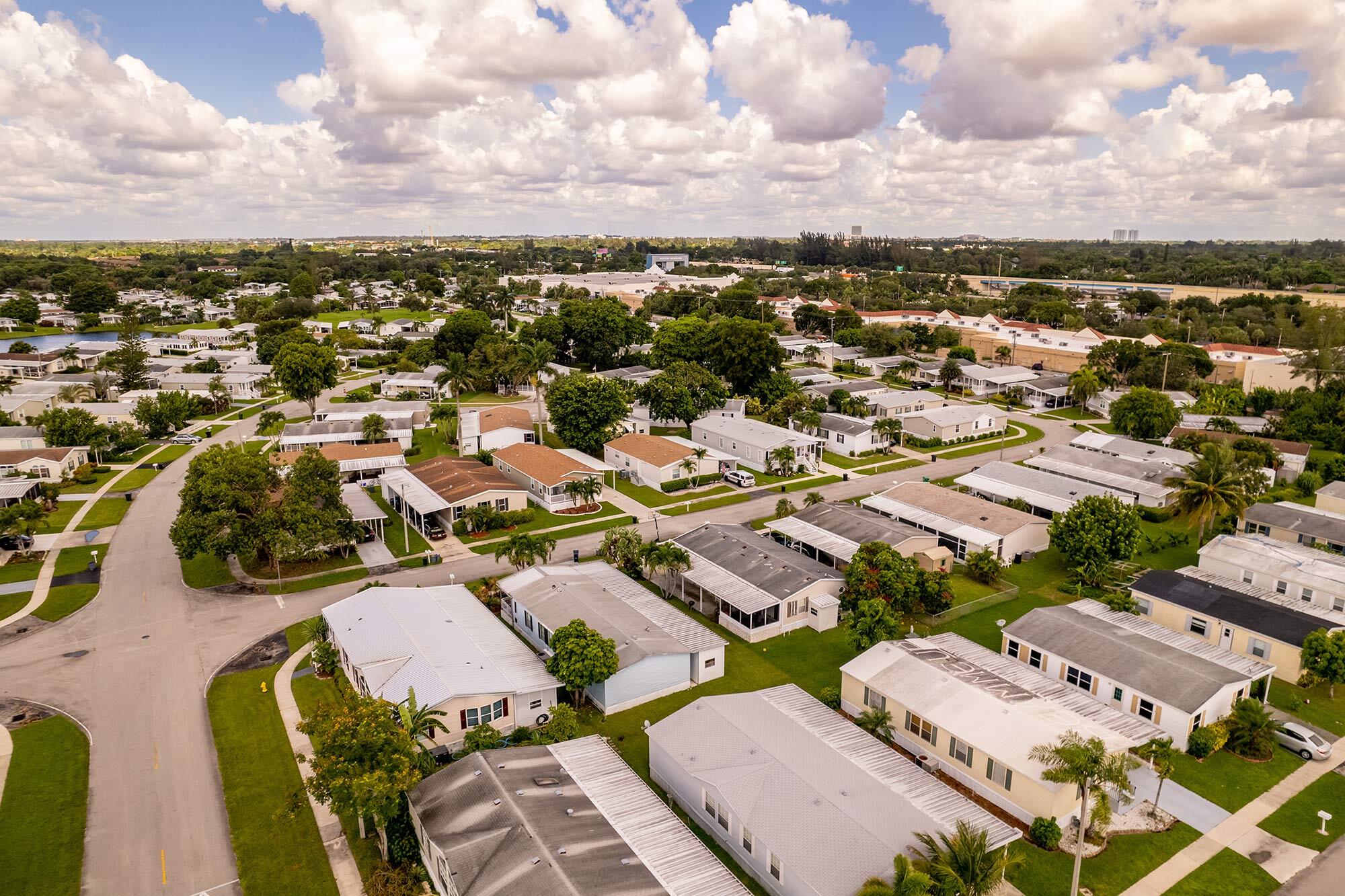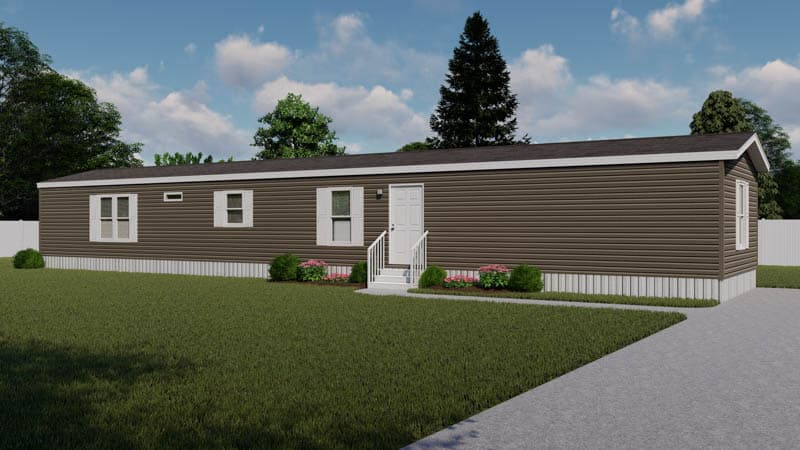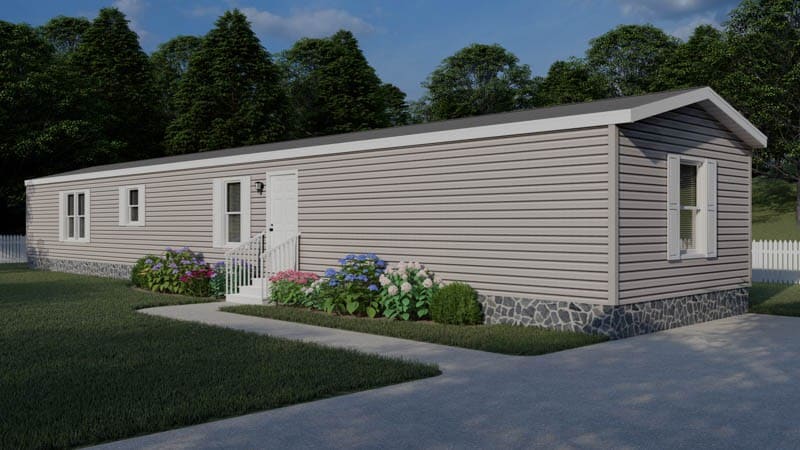
Whether you’re a first-time homebuyer, looking to downsize, or searching for your next investment, buying a manufactured home is an exciting journey.
In this guide, we’ll walk you through each step, from understanding the process to negotiating the purchase price (and many tips in between). By the end, you’ll be equipped with the knowledge and confidence to make informed decisions, so you can turn your home ownership dreams into reality.
Understanding the Manufactured Home Buying Process
Before starting on your manufactured home buying journey, it’s important to understand all the major steps along the way. Here, we’ll break down each one, so you can purchase with confidence.
Do Research and Due Diligence
First, start with the basics: what type of manufactured home do you need? Familiarize yourself with different sizes, like single- and double-wides, as well as similar types of factory-built options, like modular homes. Consider factors like your location options, amenities available, and resale value.
Remember, too, local regulations and zoning laws can impact your ability to place a manufactured home on a particular piece of land. Research these regulations upfront to save time and frustration down the road. Or, if you choose to move into a modern manufactured home community, they may handle a lot of the move-in obstacles for you.
Choose the Right Home
Once you have a clear idea of what you’re looking for, it’s time to start shopping for a manufactured home. Visit dealerships and manufactured home communities, browse online listings, and attend home expos to explore your options.
During this stage, don’t hesitate to ask questions and seek guidance from professionals in the industry. They can provide valuable insights and help you find a home that meets your needs and budget.
Find Financing Options
After selecting your new manufactured home, you’ll likely need to secure financing. Unlike traditional site-built homes, manufactured homes require specialized options, like chattel loans. These manufactured home loans are designed for movable property and often have different terms and requirements than traditional mortgages. They may have higher interest rates and shorter loan terms but can also be easier to qualify for, especially if you’re purchasing a home on leased land (like you would as part of many manufactured home communities).
With a clear understanding of home financing options, consider getting pre-approved for a loan. During this process, a lender will review your financial information and provide a conditional commitment for a specific loan amount. Pre-approval can help you determine how much you can afford to spend on a manufactured home and strengthen your position as a buyer.
Home Inspection and Closing
Once financing is in place and you’ve found your home, it’s time to schedule a home inspection. Hire a qualified inspector to thoroughly evaluate the property for any issues or defects. This step is crucial for identifying potential problems early on and negotiating repairs with the seller if necessary.
Finally, when all conditions are met, and the necessary paperwork is completed, you’ll attend the closing to finalize the purchase. During this meeting, you’ll sign the necessary documents, pay any remaining closing costs, and receive your keys.
Creating a Home Buying Budget
While we’ve summarized the process from start to finish, there are a few more tips to make sure buying a manufactured home goes smoothly for you. That starts with having a realistic budget.
To create your own home buying budget, start by evaluating your current financial situation. Determine how much you can afford to spend upfront on a down payment as well as any associated moving and utility hookup costs. Then, calculate future and recurring costs, like monthly mortgage payments and ongoing expenses related to homeownership. With all of this in mind, be sure to include:
- Closing costs: Budget about 2% to 5% of the purchase price for fees like appraisals, inspections, title insurance, and legal expenses.
- Utilities and maintenance: Budget for ongoing costs like electricity, water, sewage, and garbage removal, plus routine maintenance and repairs.
- Land lease or purchase: Factor in monthly lease payments or annual fees if placing your home on leased land. If you’re purchasing land, consider acquisition costs, property taxes, and related expenses.
- HOA fees: Consider monthly or annual fees for communities with homeowners associations, covering common area maintenance and enforcement of rules.
- Homeowners insurance: Budget for insurance premiums based on your home’s value, location, and coverage needs, and remember to compare rates for competitive pricing.
When buying your manufactured home, compare all of these with your income, expenses, existing debt, and savings. And try to factor in any potential increases in expenses over time to ensure your budget stays manageable long-term.
How to Make an Offer and Negotiate the Purchase Price
Once you’ve found the perfect manufactured home and have a clear budget in mind, it’s time to make an offer and negotiate. Here’s how.
- Research comparable sales: Check recent sales of similar homes to gauge a fair offer.
- Consider market conditions: Adjust your offer based on whether it’s a buyer’s or seller’s market.
- Include contingencies: Protect yourself with clauses for inspections, financing, and appraisals.
- Negotiate strategically: Focus on areas where you can add value, and be willing to walk away if needed.
- Get everything in writing: Ensure all agreements are documented before finalizing the deal.
By negotiating wisely, you can secure a manufactured home at a price that fits your budget.
Buying a Manufactured Home the Right Way
Congratulations! At the end of this process for buying a manufactured home, you’ll be a new homeowner. Here’s a recap of key takeaways:
- Start with research: Take the time to research everything unique to your situation, understand local community options, and hire professional help if needed.
- Keep your budget realistic: Establish a budget that considers all associated costs, both upfront and ongoing, so you can live happily in your new home.
- Make informed decisions: Use research and market knowledge to make competitive offers and negotiate effectively.
Remember, owning a manufactured home offers many benefits, including affordability, flexibility, and customization options.
If you have further questions or need assistance along the way, don’t hesitate to reach out to professionals in the industry (like us!). They can provide personalized guidance and support to help you make the best decisions for every situation.






